'Breaking barriers': How Deb Whitfield became Marion County's first Black woman mayor
- Oops!Something went wrong.Please try again later.
A month after being elected as mayor of Lawrence, Deborah “Deb” Whitfield was at Mayor School. Back straight, pen poised to take copious notes, Whitfield was nodding along to the mayor of Elkhart, Rod Roberson, as he talked about transitioning from the campaign to city hall.
The three-day conference organized by the municipal organization Accelerate Indiana Municipalities, or AIM, aimed at mentoring newly elected mayors on the fundamentals of how to run a city — from municipal finance to Open Door Law to handling the media to hiring and firing police chiefs.
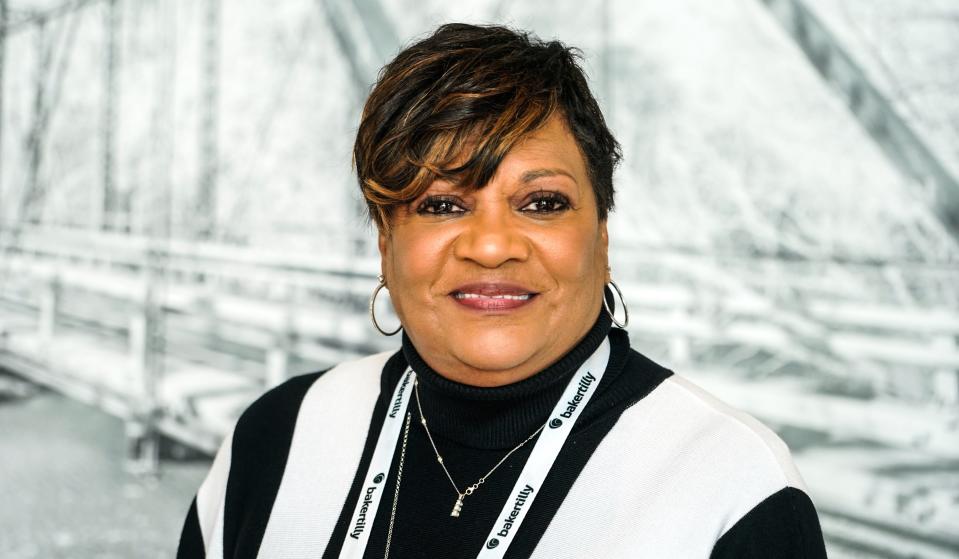
One of the things Mayor School would not teach Whitfield is how to be the first Black and first woman mayor in Marion County. Only 12 of 122 Indiana mayors taking office on Jan 1, 2024 are women and seven are Black, according to AIM CEO Matthew Greller.
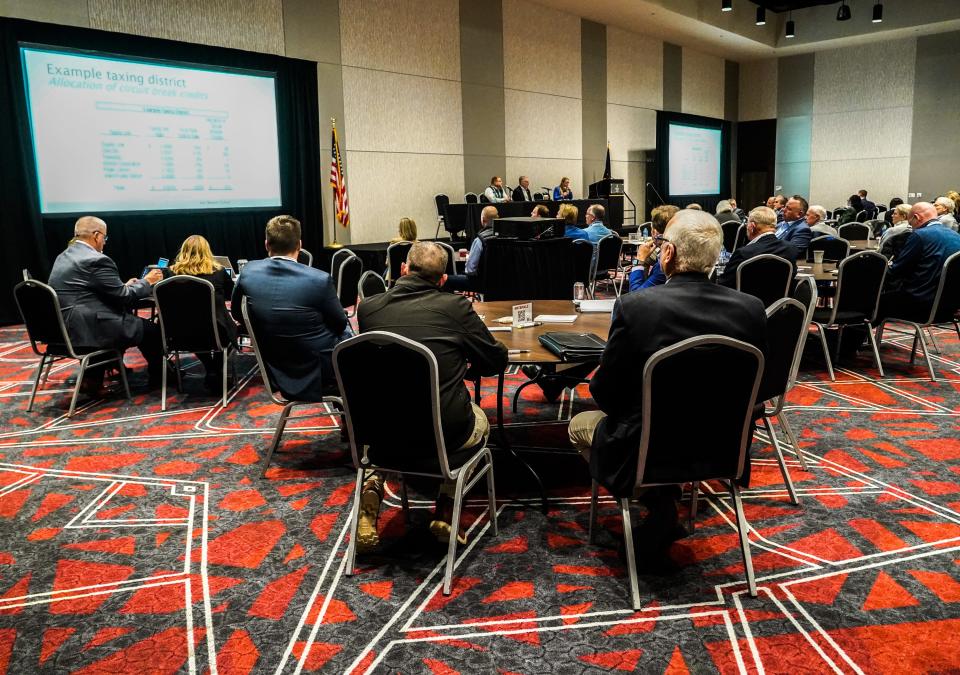
“I feel humble, because now Black and brown children, women, people of color, can see what a woman my age, because I'm 70 years old, can achieve,” Whitfield told IndyStar. “I'm honored.”
A Lawrence City Councilor since 2019, Whitfield was elected by voters in Lawrence, Marion County’s largest excluded city, on Nov. 7 to succeed two-term Republican mayor Steve Collier. Collier had backed her Republican opponent, Dave Hofmann, who had been Collier’s deputy mayor and was a former police chief.
Whitfield beat him by five points, having campaigned on being able to usher Lawrence into a new era and evolve into a safer city, with higher paying jobs and more equitable growth for residents regardless of income or neighborhood.
Being the first of anything is something that Whitfield said she didn’t even think about when deciding to run for office. It’s a title she regards with some disappointment.
“I ran my campaign because I saw the need for someone to have a strong voice and that was willing to step up,” Whitfield said. “Sometimes it's sad that in 2023, you have to be the first African-American, Black, of anything. For a person of color to be the first of anything.”
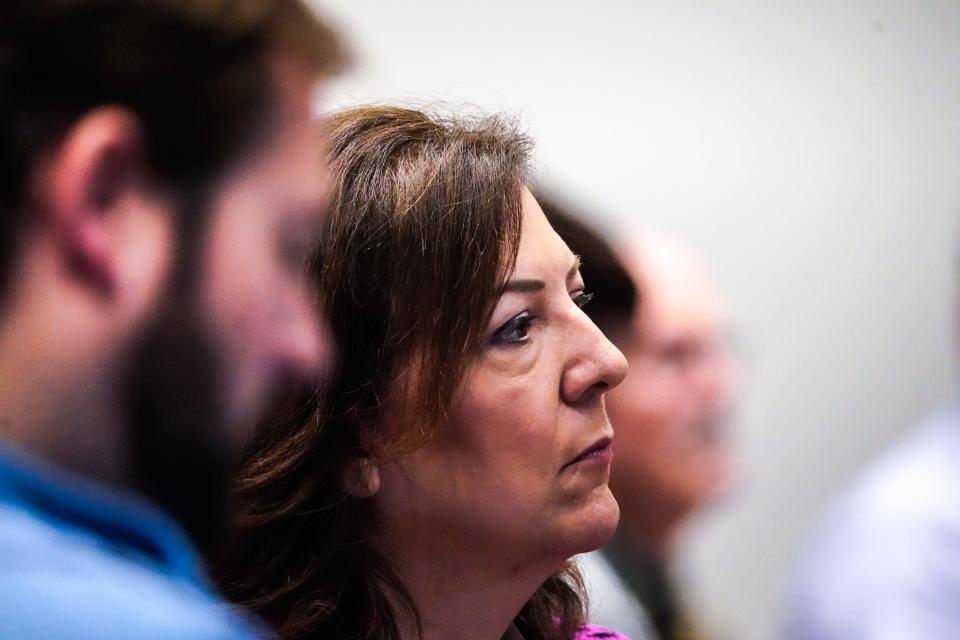
Marion County has only ever had white men as mayors until now. Gregory Shufeldt, a political science professor at the University of Indianapolis, attributes that fact to a legacy of systemic racism in the state. Unigov, the consolidation of city and county governments in 1970, diluted the power of Black voters, he said.
With Unigov, Indianapolis’ population doubled overnight to roughly 740,000, bringing along thousands of new (mostly white) voters. Indianapolis was 27% Black by the end of the 1960s. After Unigov, the Black population shrank to about 18% and took several years to rebound to the current level of nearly 29%, according to U.S. Census data.
Another reason Indianapolis has never had a Black or woman mayor until now, Shufeldt said, is the use of slating, a process by which party insiders picked candidates for primary elections. Until slating ended in 2023, it acted as a gatekeeping process that prevented candidates of color, especially women, from getting nominated, Shufeldt said.
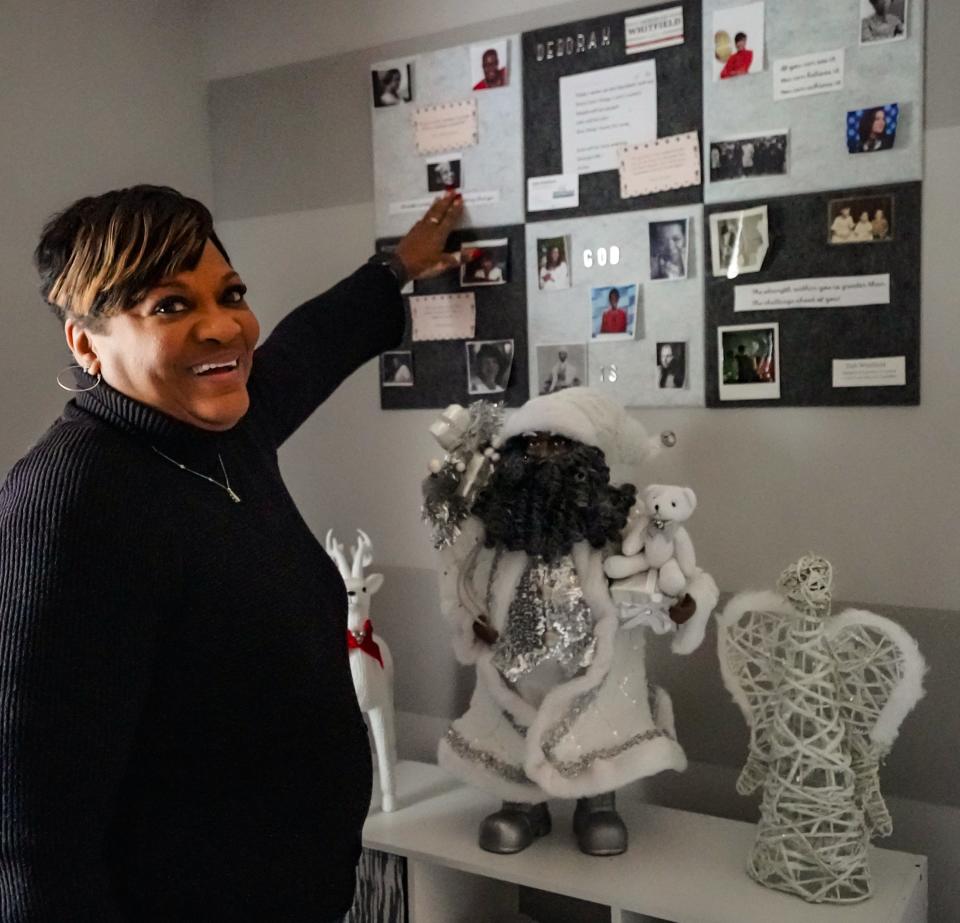
Whitfield said she thinks the difficulty of finding donors continues to be a barrier for many candidates of color. She attended the Hoosier Women Forward leadership training program, which taught her about how to navigate the difficult world of campaign fundraising and how to ask for help, something with which she said women often struggle.
Political experts have hailed Whitfield’s historic win as beneficial for Indianapolis politics.
“(Whitfield’s election) has the potential for a role model effect,” Shufeldt said. “Seeing women and seeing women of color in office will inspire other people to run for office.”
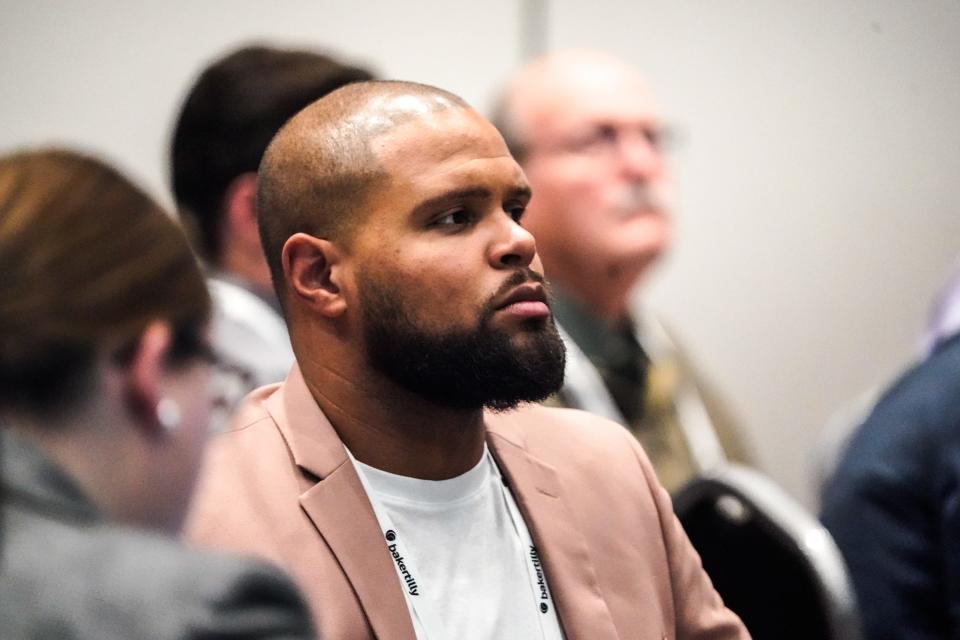
Breaking barriers as a person of color
Whitfield has had plenty of practice in being the “first” or the “only.”
She grew up in the working-class, post-industrial city of Waterbury, Connecticut, where her dad was the first Black constable in the city’s history. She was the only Black woman in her clinical respiratory therapist graduating class in the 1970s and graduated third in the class. For the last 15 years, she’s been the first diversity, equity and inclusion director at Community Health Network.
“Breaking barriers is what I've done my whole life, being 40 years in health care,” Whitfield said. “The most important thing is that you have to understand being a person of color: we always have to overcome challenges. We always have to be the best that we can be. And we always have to be on point.”
In 1995, Whitfield moved to Lawrence with her late husband who was a military Olympian and USA Track and Field manager. As she spent more time in the Lawrence community through Community Health Network, she began to see an opportunity for a person of color in Lawrence to step up to greater political leadership positions.
So in 2018, she dipped her toes into political campaigns, volunteering for Lawrence Democrat Derek Camp’s ultimately unsuccessful Indiana State Senate bid against then-Sen. Jim Merritt.
Speaking to residents while door knocking for Camp introduced her to residents who wanted to see political change in Lawrence. It spurred her to run for Lawrence City Council the following year, where she won her first election.
At first, Whitfield never thought of running for mayor.
But a group of Lawrence Democrats, including Zachary Brown, who became her campaign manager and chair of her transition team; Brown’s wife, Indianapolis City-County Councilor Ali Brown; former Lawrence Controller Keith Johnson and Democratic campaign director LeAndre Level saw her potential, Brown recalled.
Brown had met her on Camp’s campaign while he was serving as the Indiana Senate Democrats’ caucus director.
“You're this bright light that we all just really, really adore,” Brown recalled saying to her.
They told her, “You’re not a politician,” Whitfield recalled. “They thought that this is what the city needs to take and move it forward.”
Over two years, they kept hounding her, encouraging her to run for mayor. Whitfield kept saying no.
“This isn't always the case, but usually the person who really, really, really wants to be the mayor, probably is not going to be the best mayor,” Brown said. “The fact that Deb kept saying ‘no’ made me so confident that she was the exact right person because I knew she wasn't in it to be called Mayor Whitfield and get taken to dinner or whatever.”
One day, while Whitfield was fasting and praying in church, she said she got a sign.
When she finally told Brown’s team she would run, they had everything in place and leapt into action. She announced her candidacy in March 2022, within two weeks of her giving the team a 'yes'.
How a dream becomes reality
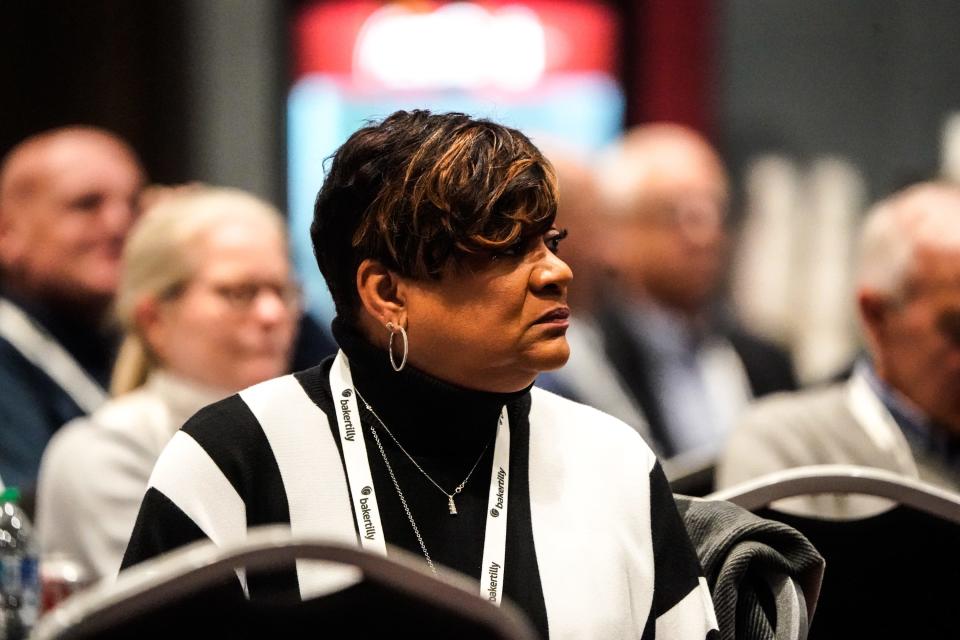
The campaign thinks Whitfield’s electoral success stems from hard boots-on-the-ground grassroots campaigning. They knocked on 15,000 doors and made more than 71,000 voter contact attempts over the course of an 18-month-long campaign, Brown said.
Throughout the campaign, Whitfield said, she encountered challenges because of her gender and race. IndyStar asked what kind of racist or misogynistic backlash she faced, but she declined to talk about specifics, preferring to stay above the fray.
Asked how she dealt with the doubters and nay-sayers, Whitfield contemplated for a moment, then said: “I had to remember who I was, where I came, from my ancestors that were standing on so many shoulders previously. We can go all the way back to the civil rights. We can go all the way back to this understanding who broke all those barriers for me to have this opportunity.”
Whitfield made a dream board pinned with photos of strong Black women leaders that inspire her: There’s former First Lady Michelle Obama, of course; Vice-President Kamala Harris; former Atlanta mayor Keisha Lance Bottoms (“I love her!” Whitfield exclaims); and Karen Freeman Wilson, the former Gary mayor who was the first Black female mayor in Indiana, elected in 2012 (“I met her a month ago and I was just beaming,” Whitfield said.)
There’s the first Black congresswoman, Shirley Chisholm, whose famous words Whitfield often repeats: If you’re not at the table, pull up a chair.
There’s Coretta Scott King, civil rights leader and Martin Luther King Jr.’s wife.
There’s the abolitionist, Sojourner Truth (“Can you imagine her, going back and forth, bringing slaves?” Whitfield said.)
And in the middle of the cadre of Black leaders she admired, Whitfield pinned a photo of her dad.
Lawrence’s future under Mayor Whitfield
Whitfield wants to become a "salesperson” for Lawrence, she said, not selling Lawrence, but attracting people to be excited about moving to Lawrence. Her main goals are economic development, affordable housing, public safety, and basic infrastructure like sidewalks, fixing potholes, and transit.
“We have an opportunity to enhance the momentum right now that’s in Lawrence,” she said. She wants to develop more retail, more family restaurants and improved connectivity to Fort Harrison State Park aimed at making Lawrence’s residents feel like they can work, live and belong in Lawrence.
In her vision, Civic Plaza, which is nestled at the edge of the state park, will become Lawrence’s downtown, she said. Brown said that the Whitfield administration wants to make Fort Harrison a recognized neighborhood on par with the likes of Fountain Square and Broad Ripple.
Lawrence, accessible by two exits off I-465, Shadeland Avenue and Pendleton Pike, is sometimes drive-through territory. Large car lots, pawn shops and raunchy clubs are remnants of a different era in the 1960s, 1970s, and 1980s, when Fort Harrison was a base for soldiers. Since 1990, the city has doubled in population and become home to many families with young children.
“It doesn't seem like that strip of Pendleton Pike necessarily serves the community that lives here now as well as it probably did 30 years ago to the people who lived here,” Brown said.
Whitfield hopes to review the outgoing Mayor Collier’s plan to make Pendleton Pike a “trades district,” she said, and develop the neighborhood with amenities for Lawrence residents, possibly by using tax increment financing as a tool.
Right now, Whitfield isn’t in a rush. She wants to make sure she’s making the right decisions for the city, hence her three-day sojourn to Noblesville to attend Mayor School. She’s shifted gears from campaign-mode to city hall-mode and said she wants to make sure every resident, whether they voted for her or not, whether Democrat or Republican, feels they belong.
“It's time,” she said. “I'm here to break barriers. I really feel that that's what I'm supposed to do. That's my journey.”
Contact IndyStar reporter Ko Lyn Cheang on X at @kolyn_cheang.
This article originally appeared on Indianapolis Star: Marion County's first Black mayor: Deb Whitfield's vision for Lawrence

